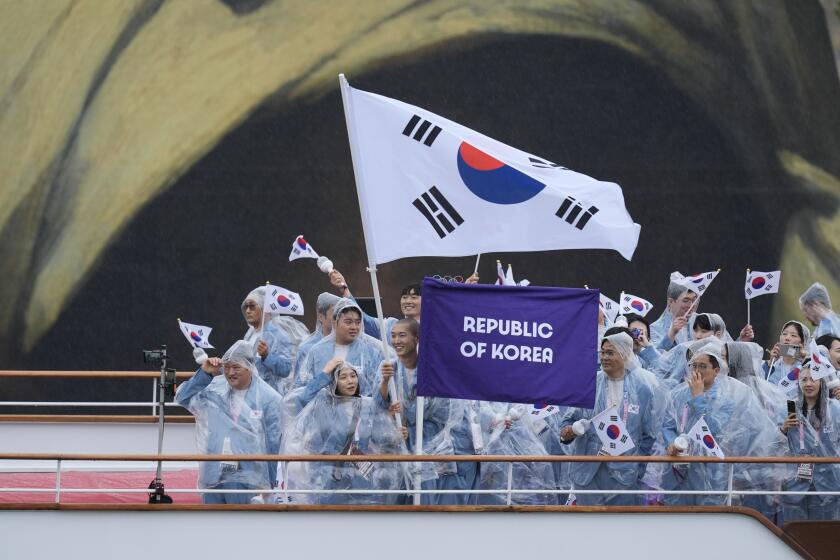Even Baker Couldn’t Get Very Far : Secretary of State gives it his best shot but leaves China with little to show for the effort
Secretary of State James A. Baker III said he did not go to China “expecting a dramatic breakthrough.” His realism, in the circumstances, proved wise.
Baker’s laudable efforts to get Beijing’s leaders to adopt a softer line on human-rights issues, a subject he raised repeatedly in the course of 18 hours of talks, were not only frustrated but--because of the prominence given his visit--became something of a diplomatic embarrassment. The Chinese, reminding their guest that they had been doing things their way for 4,000 years, would only restate their wearisome and sadly self-evident line that their ideas about human rights are markedly different from those of the West.
What modest headway was made came in the area of arms control, but even here serious questions remain about just what the consequences of what was agreed to will be. China said it would sign the Nuclear Non-Proliferation Treaty by next spring, putting a firm date to an intention it had months ago expressed to Japan and the United States. That would end China’s role as the only acknowledged nuclear power not a signatory to the NPT. What next must be seen is whether China will honor its obligations by halting the help it reportedly has been giving to Algeria and Iran for their alarming nuclear-weapons programs.
China similarly said it would begin to observe the important Missile Technology Control Regime, which was established in 1987 to limit exports of ballistic missiles and the technology for making them. Baker, in a carefully worded inference, said that “to us this means” that China will stop selling intermediate-range missiles to Pakistan and Syria, notably its mobile, solid-fuel M class missiles that have greater accuracy than the Soviet-supplied Scuds fired by Iraq earlier this year against Israel and Saudi Arabia. In exchange, the United States is to lift the embargo it put into effect last May on sales to China of supercomputers and satellites. But in Washington there is skepticism that China will control its arms transfers as Baker hopes. U.S. officials in the past thought they had such assurances from Beijing, only to see them evaporate.
None of this can be expected to play well with a Congress that has been far more vocal than the Bush Administration in criticizing China’s human rights, arms exports and trade policies. Baker went to China hoping to reduce tensions. His hosts seemed more interested in showing how inflexible they can be. In the end, those storm clouds that have shadowed U.S.-China relations since the Beijing massacre of June, 1989, remain--and have grown no less forbidding.
More to Read
Sign up for Essential California
The most important California stories and recommendations in your inbox every morning.
You may occasionally receive promotional content from the Los Angeles Times.






